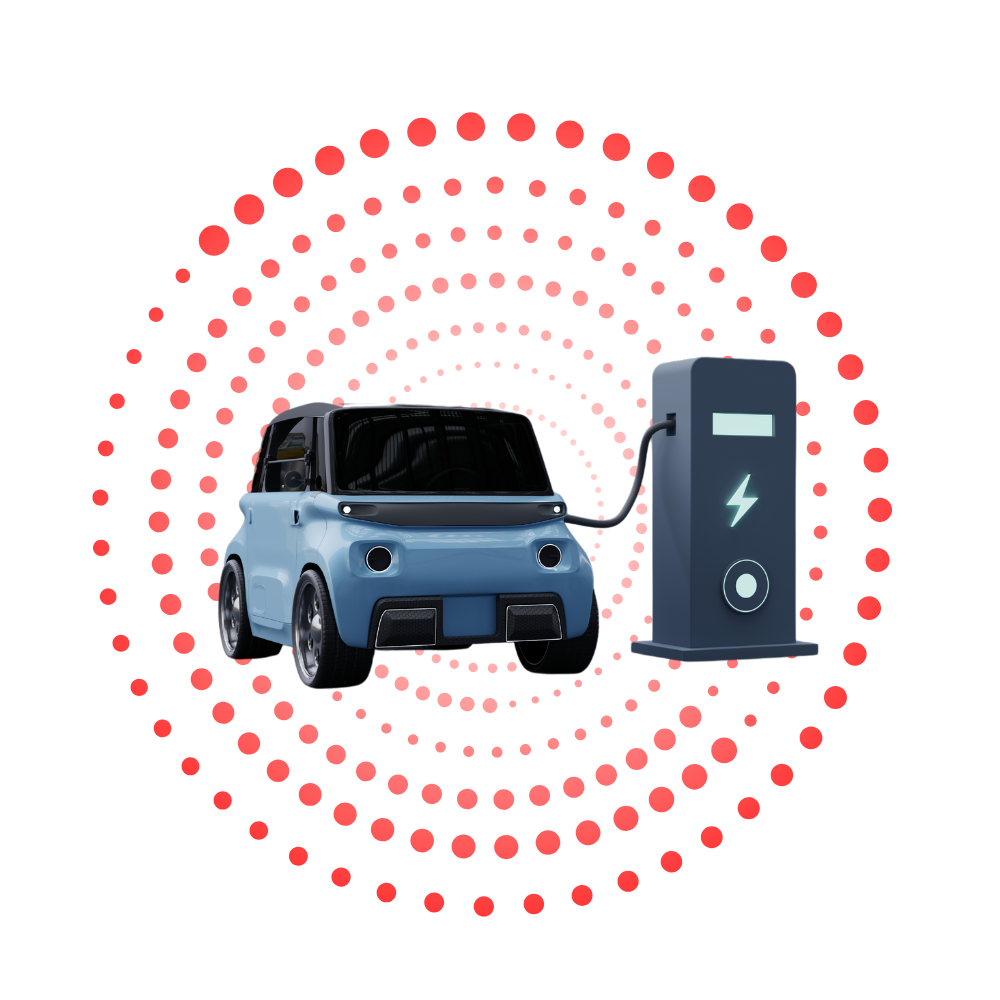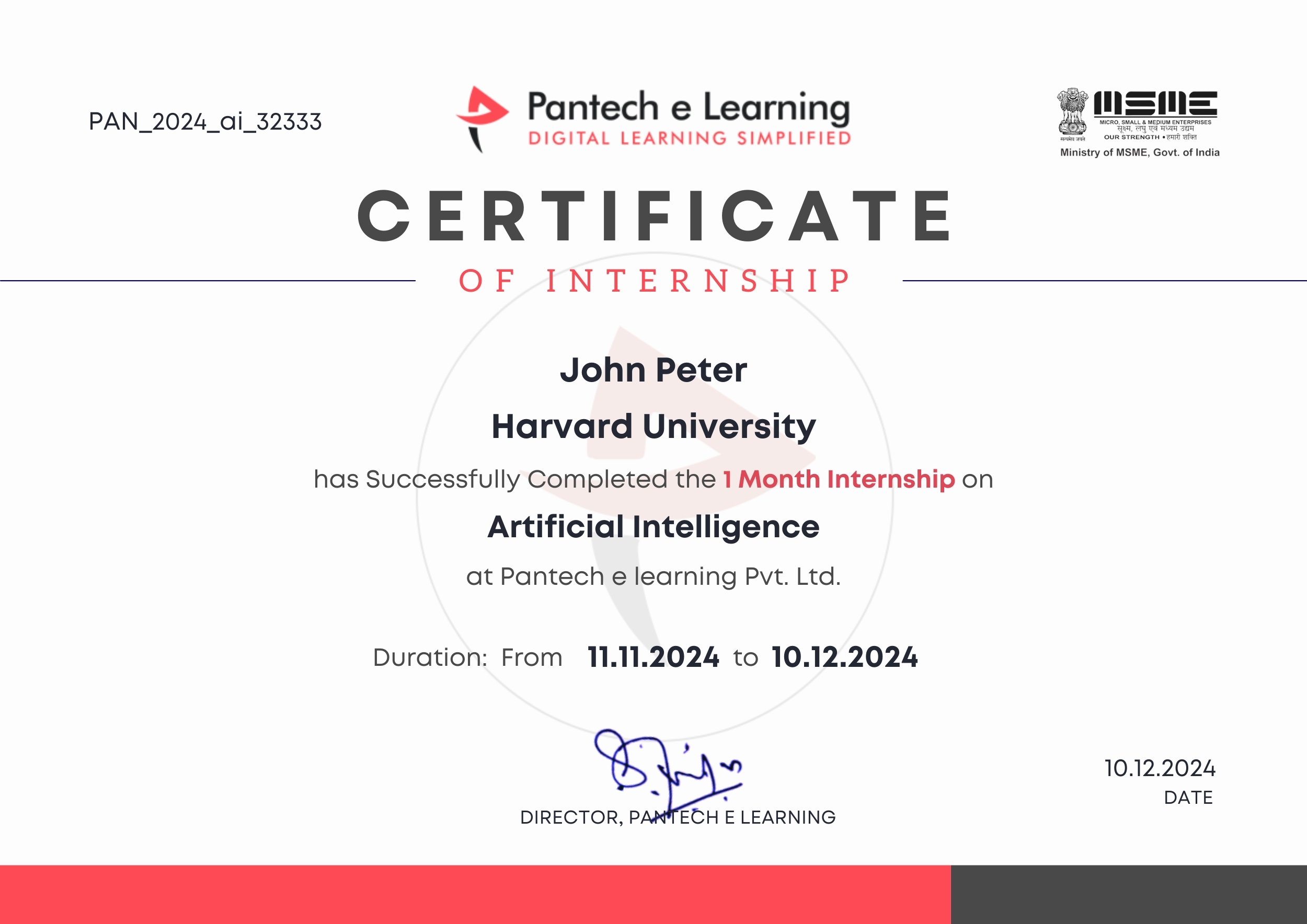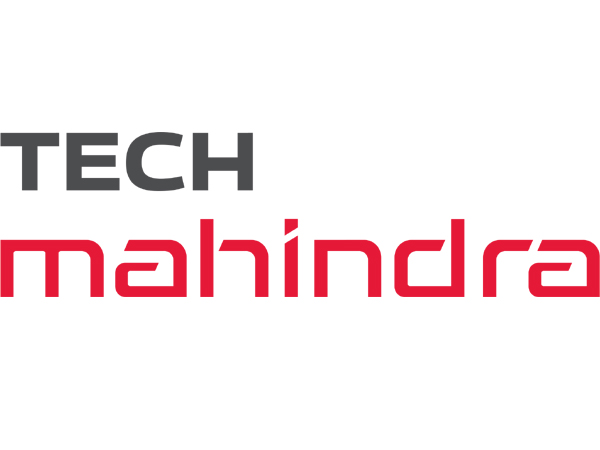
ELECTRIC VEHICLE DESIGN
Internship 2025
This curriculum covers EV and Autonomous Vehicle technologies, focusing on power electronics, motor control (DC, BLDC, PMSM, SRM) with MATLAB Simulink, battery management, and vehicle modeling. It also includes MCU integration, sensor circuits, gate drive design, and EV fabrication.
1/ 2 Months
Online
8+ Live Projects
Dual Certification
Ultimate Step towards your Career Goals: Expert in EV Design
This curriculum covers EV and Autonomous Vehicle technologies, including motor control, battery management, vehicle modeling, and power electronics with MATLAB Simulink and MCU integration.
Internship Benifits
Mentorship
Receive guidance and insights from industry experts.
Hands-on Experience
Gain practical skills in a real-world cutting-edge projects.
Networking
Connect with professionals and peers in your field.
Skill Development
Enhance your technical and soft skills.
Career Advancement
Boost your resume with valuable experience.
Certificate
Get a certification to showcase your achievements.
EV Design Internship Overview
Introduction to Electric Vehicle (EV) Dynamics
- Overview of EV architecture and components
- Forces and power requirements for EV movement
- Calculating forces on an EV (air drag, rolling resistance, gradient resistance)
Autonomous Vehicle Fundamentals
- Introduction to autonomous driving technology
- Overview of sensors and perception for autonomous vehicles
- Levels of autonomy and their application in EVs
Power Electronics for Automotive Industry
- Power electronics role in EVs
- Introduction to high-voltage components and circuits in EVs
- Safety and efficiency considerations in automotive power electronics
Rectifier and Power Factor Correction Design
- Rectifier types and applications in EVs
- Power factor correction for efficiency improvement
- Design considerations for power factor correction circuits
Introduction to eMotors for EV Applications
- Types of motors in EV applications (DC, BLDC, Induction, PMSM, SRM)
- Comparison of motor types and their specific applications in EVs
Simulink-based Motor Control
DC Motor Speed Control in Simulink
- Basics of DC motor modeling and control methods
BLDC Motor Control in Simulink
- Characteristics of BLDC motors and control techniques
FOC Control of 3-Phase Induction Motors
- Field-oriented control (FOC) basics and Simulink implementation
PMSM Motor Control in MATLAB Simulink
- Permanent Magnet Synchronous Motors (PMSM) modeling and control methods
SRM Motor Control in MATLAB Simulink
- Switched Reluctance Motor (SRM) control and Simulink design techniques
Power Inverter Design for EV Applications
- Inverter types and applications in EVs
- Design principles and performance requirements for inverters
- Efficiency, thermal management, and switching techniques
Introduction to Battery Modeling in MATLAB Simulink
- Types of batteries used in EVs
- Modeling battery characteristics and dynamics in Simulink
- State-of-Charge (SOC) and State-of-Health (SOH) considerations
Battery Management System (BMS)
- BMS architecture and components
- SOC estimation techniques, protection strategies, and safety
- Communication protocols for BMS and vehicle systems integration
Battery Thermal Management System (BTMS)
- Heat generation in EV batteries
- Thermal management strategies for battery longevity
- Simulation techniques and integration with vehicle systems
Simscape Introduction and Fundamentals
- Basics of physical modeling using Simscape
- Application to vehicle dynamics and component modeling.
Vehicle Powertrain Modeling
- Components of an EV powertrain (motor, inverter, battery)
- Torque-speed characteristics, power management, and efficiency
Vehicle Drive and Control Systems
- Vehicle control strategies for EVs (speed control, regenerative braking)
- Integration of drive controls with sensors and motor controllers
- Simulation of drive systems and analysis in Simulink
Sensor Circuit Design for EV Applications
- Types of sensors used in EVs (current, voltage, speed, temperature)
- Designing and interfacing sensor circuits with microcontrollers
- Sensor data processing and integration with vehicle systems
MCU Basics and Application for EV Control
- Introduction to microcontrollers (MCUs) and their role in EVs
- Overview of control tasks (speed, voltage, and current management)
- Interfacing MCUs with sensors, motors, and power electronics
Gate Drive Design for EV Applications
- Role of gate drives in EV power electronics
- Types of gate drives and design considerations
- Integrating gate drives with inverters and motor control circuits
Arduino-Based Induction Motor Control
- Using Arduino for motor control in prototyping EV systems
- Basics of induction motor control using Arduino
- Real-time control applications and limitations
Autonomous Vehicle Basics and EV Fabrication
- Integrating autonomous vehicle features in EV prototypes
- Building and fabricating a small-scale EV model
- Testing and fine-tuning control algorithms for EV applications



Looking for in-depth Syllabus Information? Explore your endless possibilities in EV Design with our Brochure!
share this detailed brochure with your friends! Spread the word and help them discover the amazing opportunities awaiting them.
Project Submission: Example Output Screenshots from Our Clients
Take a look at these sample outputs crafted by our clients. These screenshots showcase the impressive results achieved through our courses and projects. Be inspired by their work and visualize what you can create!













Dual Certification: Internship Completion & Participation
Earn prestigious Dual Certification upon successful completion of our internship program. This recognition validates both your participation and the skills you have honed during the internship


How does this Internship Program Work?
Step 1 Enroll in the Program
- Get a Mentor Assigned
- Presentations & Practice Codes
- Learn at your Flexible Time
- Apprehend the concepts
Step 2 Project Development
- Implement Skills Learn
- Develop Projects with assistance
- Get Codes for Reference
- Visualise the Concepts
Step 3 Get Certified
- Certificate of Internship
- Project Completion Certificate
- Share on social media
- Get Job Notifications
Choose Your Plan fit your needs
Master the Latest Industrial Skills. Select a technology domain & kick off your Internship immediately.
1 Month
₹1999/-
₹999/-
- Internship Acceptance Letter
- 90 Days from the date of payment
- 4 LIVE intractive Mastermind Sessions
- 4+ Capstone Projects & Codes
- Full Roadmap
- Internship Report
- 1 Month Internship Certificate
2 Month
₹3299/-
₹1899/-
- Internship Acceptance Letter
- 180 Days from the date of payment
- 4 LIVE interactive Mastermind Sessions
- 12+ Capstone Projects & Codes
- Full Roadmap
- Internship Report
- Participation Certificate
- 2 Month Internship Certificate
Our Alumni Employers
Curious where our graduates make their mark? Our students go on to excel in leading tech companies, innovative startups, and prestigious research institutions. Their advanced skills and hands-on experience make them highly sought-after professionals in the industry.









EXCELLENTTrustindex verifies that the original source of the review is Google. I recently completed my Python internship under the guidance of Mentor poongodi mam We learnt so many new things that developed my knowledge.this experience is good to learnTrustindex verifies that the original source of the review is Google. I completed my python internship guidance of mentor poongodi mam. She thought us in friendly qayTrustindex verifies that the original source of the review is Google. Poongodi mam done very well She took the class very well When we ask any doubt without getting bored she will explain,we learned so much from mam,marvelousTrustindex verifies that the original source of the review is Google. I have handled by poongodi mam.domain python intership...was goodTrustindex verifies that the original source of the review is Google. I recently completed Python internship under the guidance of poongodi mam who excelled in explaining concepts in an easily understandable wayTrustindex verifies that the original source of the review is Google. Fantastic class we were attended..we got nice experience from this class..thank you for teaching python mam...Trustindex verifies that the original source of the review is Google. -The course content was well-structured - I gained valuable insights into microcontrollers, sensors, and programming languages- The workshop was informative, interactive, and challenging, pushing me to think creatively. Ms Jimna our instructor her guidance and feedback helped me overcome obstacles and improve my skills.Trustindex verifies that the original source of the review is Google. The learning experience was really worth since more than gaining just the knowledge all of the inputs were given in a friendly and sportive manner which then made it a good place to learn something with a free mindset... 👍🏻Trustindex verifies that the original source of the review is Google. I recently completed my full stack python intership under the guidance of mentor Gowtham,who excelled in explaining concepts in an easily understand mannerTrustindex verifies that the original source of the review is Google. Gowtham-very interesting class and I learning so many things in full stack python development and I complete my internship in Pantech e learning and it is useful for my career
FAQ
What is an electric vehicle (EV)?
An electric vehicle (EV) is powered entirely or partially by electricity. It typically uses an electric motor powered by rechargeable battery packs, reducing the reliance on traditional internal combustion engines.
What is an autonomous vehicle?
An autonomous vehicle (AV) is capable of sensing its environment and operating without human intervention. It uses sensors like LIDAR, radar, cameras, and GPS to navigate roads and make decisions in real-time.
How does a power inverter work in an EV?
A power inverter in an EV converts DC (direct current) from the battery into AC (alternating current) to power the electric motor. This allows the motor to rotate and drive the vehicle.
What is the role of a rectifier in an EV powertrain?
A rectifier converts AC power (typically from regenerative braking or the power grid during charging) into DC power to charge the EV’s battery.
What role does power electronics play in EVs?
Power electronics control the flow of electrical energy between the battery, motor, and other vehicle components. It includes inverters, converters, and DC-DC converters for efficient power management.
What is FOC (Field-Oriented Control) in motor control?
Field-Oriented Control is an advanced method of controlling three-phase AC motors that allows precise control of motor torque and speed, improving the efficiency and performance of EV motors.
Start Your Tech Journey Today
Sign Up for Exclusive Resources and Courses Tailored to Your Goals!
© 2025 pantechelearning.com

